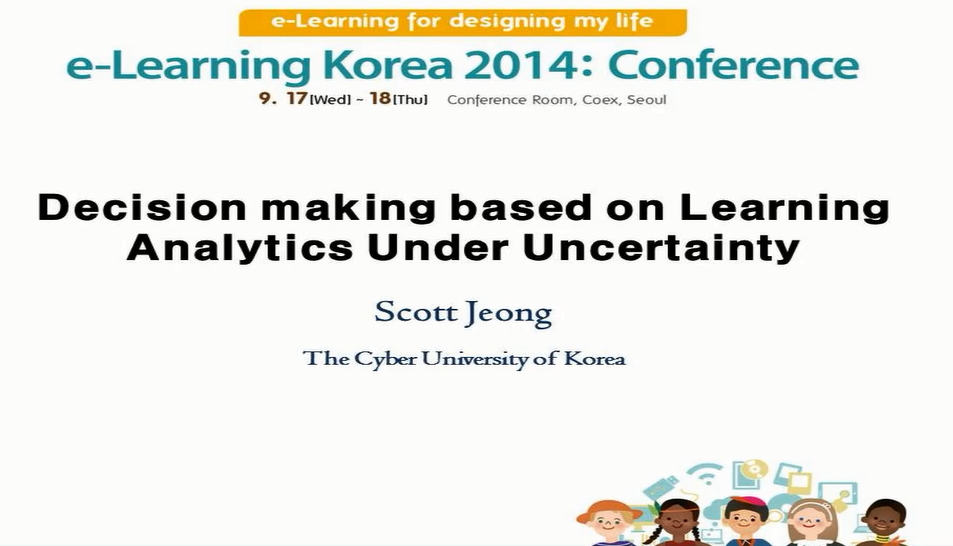This study examined whether there was a difference in the attitude toward the recommended product and the effect on the choice deferral according to information sources. Experiment 1 examined the relationship between trust in information and product a...
http://chineseinput.net/에서 pinyin(병음)방식으로 중국어를 변환할 수 있습니다.
변환된 중국어를 복사하여 사용하시면 됩니다.
- 中文 을 입력하시려면 zhongwen을 입력하시고 space를누르시면됩니다.
- 北京 을 입력하시려면 beijing을 입력하시고 space를 누르시면 됩니다.

AI 챗봇과 상담원이 추천하는 제품에 대한 태도와 선택연기에 미치는 영향 = Effects of AI Chatbot and Service Agent on Attitude and Choice Deferral of Recommended Products
한글로보기https://www.riss.kr/link?id=A108075361
-
저자
유건우 (경희대학교)

- 발행기관
- 학술지명
- 권호사항
-
발행연도
2022
-
작성언어
Korean
-
주제어
AI 챗봇 ; 불확실성 ; 사회적 실재감 ; 의인화 ; 제품태도 ; 선택연기 ; AI Chatbot ; Uncertainty ; Social Presence ; Anthropomorphism ; Product Attitude ; Choice Deferral
-
등재정보
KCI등재
-
자료형태
학술저널
- 발행기관 URL
-
수록면
297-307(11쪽)
-
KCI 피인용횟수
0
- DOI식별코드
- 제공처
-
0
상세조회 -
0
다운로드
부가정보
다국어 초록 (Multilingual Abstract)
This study examined whether there was a difference in the attitude toward the recommended product and the effect on the choice deferral according to information sources. Experiment 1 examined the relationship between trust in information and product attitude, and between uncertainty and choice deferral according to information sources (AI chatbot vs. human). Experiment 2 examined the impact of social presence, perceived personalization, and choice deferral according to whether anthropomorphism of AI chatbots or not. The research results are as follows. First, consumers were found to have a more positive attitude toward products recommended by AI chatbots (vs. human). Second, consumers were more choice deferral whether to purchase products recommended by AI chatbots (vs. human). Third, it was found that consumers' selection of products recommended by anthropomorphic AI chatbots (vs. impersonated AI chatbots) increased. Also, the implications of this study and future research directions were discussed.
국문 초록 (Abstract)
본 연구는 정보제공원(AI 챗봇 vs. 상담원)에 따라 추천하는 제품에 대한 태도와 선택연기에 미치는 영향에 차이가 있는지 살펴보고, 이러한 차이가 발생하게 된 심리적 프로세스에 대해 정보...
본 연구는 정보제공원(AI 챗봇 vs. 상담원)에 따라 추천하는 제품에 대한 태도와 선택연기에 미치는 영향에 차이가 있는지 살펴보고, 이러한 차이가 발생하게 된 심리적 프로세스에 대해 정보신뢰와 불확실성을 중심으로 살펴보았다. 또한, AI 챗봇이 추천하는 제품에 대한 선택연기를 감소하기 위한 방안으로 의인화의 역할과 사회적 실재감, 지각된 개인화의 순차적 매개효과에 대해 살펴보았다. 이를 살펴보기 위해 3회의 실험을 수행하였다. 실험 1은 256명을 대상으로 시나리오 기법을 사용하여 여행상품 구매과정에서 정보제공원(AI 챗봇 vs. 상담원)에 따른 정보신뢰와 제품태도에 미치는 영향과 불확실성과 선택연기에 미치는 영향에 대해 살펴보고자 하였다. 실험 2는 160명을 대상으로 AI 챗봇의 의인화 여부에 따른 사회적 실재감, 지각된 개인화, 선택연기에 미치는 영향에 대해 살펴보고자 하였다. 연구결과는 다음과 같다. 첫째, 소비자는 AI 챗봇(vs. 상담원)이 추천하는 제품정보를 신뢰하여 더 긍정적인 제품태도를 보이는 것으로 나타났다. 둘째, 소비자는 AI 챗봇(vs. 상담원)이 추천하는 제품을 구매할지 선택하는 상황에서 오히려 불확실성을 지각하여 선택연기가 높게 나타났다. 셋째, 소비자는 의인화된 AI 챗봇(vs. 비의인화된 AI 챗봇)이 추천하는 제품에 대한 선택연기는 사회적 실재감과 지각된 개인화를 통해 감소하는 것으로 나타났다. 마지막으로 연구결과를 기반으로 시사점과 향후 연구방향에 대해 논의하였다.
참고문헌 (Reference)
1 김문태, "소비자-브랜드 관계형성에 있어 브랜드의인화의 역할" 대한경영정보학회 33 (33): 77-97, 2014
2 S. Youn, "“In AI We Trust?” The Effects of Parasocial Interaction and Technopian versus Luddite Ideological Views on Chatbot-based Customer Relationship Management in the Emerging “Feeling Economy”" 119 : 106721-, 2021
3 L. Sproull, "When the Interface is a Face" 11 (11): 97-124, 1996
4 C. A. Bjørkli, "What Makes Users Trust a Chatbot for Customer Service? An Exploratory Interview Study" 194-, 2018
5 A. Faraji-Rad, "Uncertainty increases The Reliance on Affect in Decisions" 44 (44): 1-21, 2017
6 J. Short, "The Social Psychology of Telecommunications" John Wiley & Sons 1976
7 S. M. Miranda, "The Social Construction of Meaning : An Alternative Perspective on Information Sharing" 14 (14): 87-106, 2003
8 D. Cyr, "The Role of Social Presence in Establishing Loyalty in E-service Environments" 19 (19): 43-56, 2007
9 C. J. Anderson, "The Psychology of Doing Nothing : Forms of Decision Avoidance Rresult from Reason and Rmotion" 129 (129): 139-167, 2003
10 J. J. Argo, "The Influence of a Mere Social Presence in a Retail Context" 32 (32): 207-212, 2005
1 김문태, "소비자-브랜드 관계형성에 있어 브랜드의인화의 역할" 대한경영정보학회 33 (33): 77-97, 2014
2 S. Youn, "“In AI We Trust?” The Effects of Parasocial Interaction and Technopian versus Luddite Ideological Views on Chatbot-based Customer Relationship Management in the Emerging “Feeling Economy”" 119 : 106721-, 2021
3 L. Sproull, "When the Interface is a Face" 11 (11): 97-124, 1996
4 C. A. Bjørkli, "What Makes Users Trust a Chatbot for Customer Service? An Exploratory Interview Study" 194-, 2018
5 A. Faraji-Rad, "Uncertainty increases The Reliance on Affect in Decisions" 44 (44): 1-21, 2017
6 J. Short, "The Social Psychology of Telecommunications" John Wiley & Sons 1976
7 S. M. Miranda, "The Social Construction of Meaning : An Alternative Perspective on Information Sharing" 14 (14): 87-106, 2003
8 D. Cyr, "The Role of Social Presence in Establishing Loyalty in E-service Environments" 19 (19): 43-56, 2007
9 C. J. Anderson, "The Psychology of Doing Nothing : Forms of Decision Avoidance Rresult from Reason and Rmotion" 129 (129): 139-167, 2003
10 J. J. Argo, "The Influence of a Mere Social Presence in a Retail Context" 32 (32): 207-212, 2005
11 S. Hudson, "The Influence of Social Media Interactions on Consumer–brand Relationships : A Three-country Study of Brand Perceptions and Marketing Behaviors" 33 (33): 27-41, 2016
12 S. Y. Komiak, "The Effects of Personalization and Familiarity on Trust and Adoption of Recommendation Agents" 941-960, 2006
13 Y. K. Choi, "The Effects of Anthropomorphic Agents on Advertising Effectiveness and the Mediating Role of Presence" 2 (2): 19-32, 2001
14 V. Arnold, "The Differential Use and Effect of Knowledge-based System Explanations in Novice and Expert Judgment Decisions" 79-97, 2006
15 L. K. Fryer, "Stimulating and Sustaining interest in A Language Course : An Experimental Comparison of Chatbot and Human Task Partners" 75 : 461-468, 2017
16 P. Huang, "Searching for Experience on the Web : An Eempirical Examination of Consumer Behavior for Search and Experience Goods" 73 (73): 55-69, 2009
17 유은아 ; 김정현, "SNS 내 브랜드 의인화 효과 연구" 한국광고홍보학회 (115) : 366-393, 2017
18 J. Hill, "Real Conversations with Artificial Intelligence : A Comparison between Human–human Online Cconversations and Hhuman–chatbot Conversations" 49 : 245-250, 2015
19 B. Zarouali, "Predicting Consumer Responses to a Chatbot on Facebook" 21 (21): 491-497, 2018
20 N. Kumar, "Para-social Presence and Communication Capabilities of a Web site : A Theoretical perspective" 1 (1): 5-24, 2002
21 N. Epley, "On Seeing Human : A Three-factor Theory of Anthropomorphism" 114 (114): 864-, 2007
22 A. C. Horowitz, "Naturalizing Anthropomorphism : Behavioral Prompts to Our Humanizing of Animals" 20 (20): 23-35, 2007
23 D. J. Moore, "Multiple Sources in Advertising Appeals : When Product Endorsers are paid by the Advertising Sponsor" 22 (22): 234-243, 1994
24 D. Gefenm, "Managing User trust in B2C E-services" 2 (2): 7-24, 2003
25 J. C. Kozup, "Making Healthful Food Choices : The Influence of Health Claims and Nutrition Information on Consumers’Evaluations of Packaged Food Products and Restaurant Menu Items" 67 (67): 19-34, 2003
26 P., Aggarwal, "Is that Car Smiling at Me? Schema Congruity as a Basis for Evaluating Anthropomorphized Products" 34 (34): 468-479, 2007
27 A. F. Hayes, "Introduction to Mediation, Moderation, and Conditional Process Analysis: A Regression-Based Approach" Guilford Press 2013
28 J. B. Walther, "Interpersonal Effects in Computer-mediated Interaction : A Relational Perspective" 19 (19): 52-90, 1992
29 G. Van Noort, "Interactivity in Brand Web Sites : Cognitive, Affective, and Behavioral Responses explained by Consumers' Online Flow Experience" 26 (26): 223-234, 2012
30 D. R. Fortin, "Interactivity and Vividness effects on Social Presence and Involvement with a Web-based Advertisement" 58 (58): 387-396, 2005
31 C. J. Keng, "Impact of Telepresence Levels on Internet Advertising Effects" 9 (9): 82-94, 2006
32 D. J. MacInnis, "Humanizing Brands : When Brands seem to be like Me, Part of Me, and in a Relationship with Me" 27 (27): 355-374, 2017
33 L. A. Cavanaugh, "Feeling Love and Doing more for Distant Others : Specific Positive Emotions Differentially Affect Prosocial Consumption" 52 (52): 657-673, 2015
34 S. Gregor, "Explanations from Intelligent Systems : Theoretical Foundations and Implications for Practice" 497-530, 1999
35 R. Roy, "Enhancing Chatbot Effectiveness : The Role of Anthropomorphic Conversational Styles and Time Orientation" 126 : 23-34, 2021
36 D. Davis, "Determinants of Responsiveness in Dyadic Interaction. In Personality, Roles, and Social Behavior" Springer 1982
37 Erdem, "Decision-making under Uncertainty : Capturing Dynamic Brand Choice Processes in Turbulent Consumer Goods Markets" 15 (15): 1-20, 1996
38 J. D. Shulman, "Consumer Uncertainty and Purchase Decision Reversals : Theory and evidence" 34 (34): 590-605, 2015
39 R. Dhar, "Consumer Preference for a No-choice Option" 24 (24): 215-231, 1997
40 L. M. Caro, "Cognitive–affective Model of Consumer Satisfaction. An Exploratory Study within the Framework of a Sporting Event" 60 (60): 108-114, 2007
41 R. L. Oliver, "Cognitive, Affective, and Attribute Bases of the Satisfaction Response" 20 (20): 418-430, 1993
42 A. Fadhil, "Can a Chatbot Determine My Diet?:Addressing Challenges of Chatbot Application for Meal Recommendation"
43 J. E. Urbany, "Buyer Uncertainty and Information Search" 16 (16): 208-215, 1989
44 Y. Pan, "Born Unequal : A Study of the Helpfulness of User-generated Product Reviews" 87 (87): 598-612, 2011
45 H. Sheng, "An Experimental Study on Ubiquitous Commerce Adoption : Impact of Personalization and Privacy Concerns" 9 (9): 344-376, 2008
46 H. H. Chang, "Affect as A Decision-making System of The Present" 40 (40): 42-63, 2012
47 J. L. Aaker, "Accessibility or Diagnosticity? Disentangling the Influence of Culture on Persuasion Processes and Attitudes" 26 (26): 340-357, 2000
동일학술지(권/호) 다른 논문
-
스타트업(창업기업)의 융복합적 연구(정부지원,기업가정신,트랜드)가 경영성과에 미치는 영향
- 한국디지털정책학회
- 주복기
- 2022
- KCI등재
-
특허의 피인용에 영향을 끼치는 요인에 대한 연구: 미국 자동차 특허를 중심으로
- 한국디지털정책학회
- 류원림
- 2022
- KCI등재
-
소진이 번영에 미치는 영향: 우울의 매개효과와 심리적 분리의 조절된 매개효과를 중심으로
- 한국디지털정책학회
- 정승철
- 2022
- KCI등재
-
4차 산업 벤처기업의 기술사업화 성공 요인 분석 : 스마트팜 기업 중심으로
- 한국디지털정책학회
- 김대유
- 2022
- KCI등재
분석정보
인용정보 인용지수 설명보기
학술지 이력
| 연월일 | 이력구분 | 이력상세 | 등재구분 |
|---|---|---|---|
| 2025 | 평가예정 | 신규평가 신청대상 (신규평가) | |
| 2022-06-01 | 평가 | 등재학술지 취소 | |
| 2020-01-01 | 평가 | 등재학술지 유지 (재인증) |  |
| 2017-01-01 | 평가 | 등재학술지 유지 (계속평가) |  |
| 2014-01-21 | 학술지명변경 | 한글명 : 디지털정책연구 -> 디지털융복합연구외국어명 : Journal of Digital Policy & Management -> Journal of Digital Convergence |  |
| 2013-01-01 | 평가 | 등재 1차 FAIL (등재유지) |  |
| 2010-01-01 | 평가 | 등재학술지 선정 (등재후보2차) |  |
| 2009-01-01 | 평가 | 등재후보 1차 PASS (등재후보1차) |  |
| 2007-01-01 | 평가 | 등재후보학술지 선정 (신규평가) |  |
| 2005-03-25 | 학회명변경 | 한글명 : (사)한국디지털정책학회 -> 한국디지털정책학회영문명 : 미등록 -> The Society of Digital Policy & Management |
학술지 인용정보
| 기준연도 | WOS-KCI 통합IF(2년) | KCIF(2년) | KCIF(3년) |
|---|---|---|---|
| 2016 | 1.59 | 1.59 | 1.46 |
| KCIF(4년) | KCIF(5년) | 중심성지수(3년) | 즉시성지수 |
| 1.35 | 1.34 | 1.61 | 0.64 |




 ScienceON
ScienceON eArticle
eArticle






